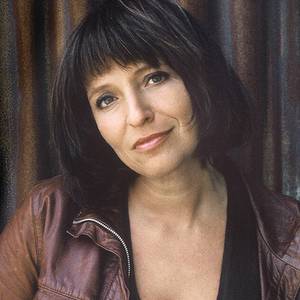 Another Director I've been reading about, below are some notes that may help in the future.
Another Director I've been reading about, below are some notes that may help in the future.- She she says she has to be terrified of the material and terrified about how she is going to put that material where it needs to go. This helps her deliver her best work.
- One particular thing she learned very quickly was that when filming an actor delivering a long piece of dialogue how surprised she was that she really wanted to see the listener more so than the speaker. In the script the speaker is the focus but when your filming that may have to change. By shifting focus it can help give the scene a stronger emotional punch.
- She says she's on a creative high when working on a film, even though its a very intense experience she really throws herself at it. It wasn't until she finished her first feature film that she realized just how hard it is to make a film.
- Always think of the audience when writing a script or shooting, tell stories people want to hear.
- She doesn't writer her own scripts but she collaborates with Andreas Thomas Jensen (who writes the script) and likens the forming of a script to building with Lego. They don't write a synopsis they develop themes and characters then develop the story from there.
- When she is on set working with her actors she always considers the arc of the scene and tries to find the less obvious or less predictable journey through that scene which she believes is often the most realistic or natural one.
- She comments on how quiet and focused her set is and how it lacks any tension. She says that when you require your actors to do something quite frightening like a sex scene the best way to deal with it is just continue working as you do and don't make a drama out of it on set by throwing out your crew ect.
- She tells real stories with human characters so she is not overly interested in fancy camera work or huge sweeping tracking shots, if it does not tell her story then it does not go into the film.
Advice to young film makers -
"It may sound like a really stupid thing to say, but the best thing for film makers is to have a life. I think I am a bit wary of people who have been crazy about movies since the age of eight and live in the movie world. Of course there are exceptions, but in general the movies I enjoy have some relationship to life. I feel that for a director to convey life it is worthwhile to have some experience in it."
Footnote -
I find her advice quite interesting they way she points out its really important to look beyond the world of cinema to help you become a better film maker because I've always been worried that I don't love cinema enough and that its one of my shortcomings. Cinema has always been one of my big pleasures but I enjoy sports, gaming and writing before cinema and Bier has given me a little more confidence that it is OK to not live and breath movies.
Its interesting because in the book that I'm reading Del Torro's advice is almost the opposite, he says that you really need to look back through history and watch all the movies you can that are worth while and really invest time into the workings of all your favorite films and talk about them, he reminds me of Peter Jackson, both were huge movie fans from such an early age. I think its important to have a middle ground, I know in my heart that not many 24 year olds have had the life I've had so with all those experiences I need to use them and let them help me create interesting stories and characters. I suppose I'm beginning to understand the term 'point of view' with regards to the tone and themes of a particular film.
No comments:
Post a Comment
Please feel free to drop me a msg anytime.